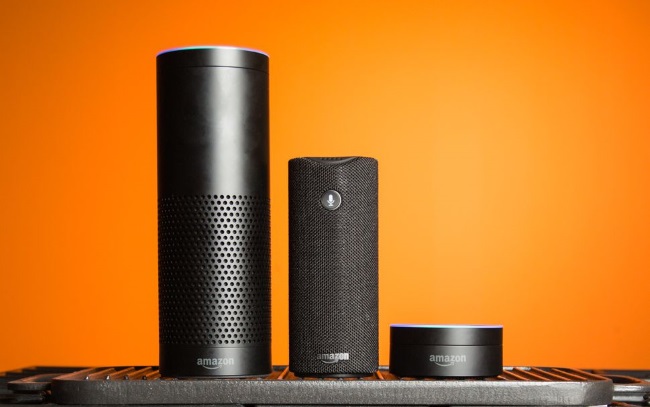Technology has changed how people work in countless ways. It’s common for employees to store data in the cloud, confer with colleagues from afar by using video software and depend on auto-correct and spell-checking software to facilitate more efficient and accurate note-taking. High-tech advancements have also paved the way for the rise of a new type of co-worker: the virtual assistant.
In the past, many people gave essential office duties to their secretaries. Intelligent software and corresponding devices are taking over and reducing the need for human help.

Amazon Is Marketing Alexa for Business Use
Like many people, you may have been fascinated by demonstrations of Alexa, Amazon’s virtual assistant, helping users add items to their shopping lists, call for taxis and give information about local businesses. All those capabilities could potentially come in handy at work, such as while ordering office supplies, sorting out transportation to a meeting and figuring out where to take a new client for a lunch meeting.
Amazon had other ideas, though, and has begun promoting Alexa as a worthy addition to the corporate world. The Alexa for Business initiative especially focuses on conference rooms and allows people to use Alexa-enabled devices to turn the lights on and off or adjust the temperature during meetings.
Business clients can also develop their own Alexa Skills, which are third-party applications that work with the foundational technology. Already, there are thousands of Alexa Skills. Some of the most beneficial ones help you study flashcards before a test, learn cool facts or listen to themed music. However, those aren’t as helpful in most office settings as they could be at home.
Fortunately, Amazon allows companies to create workplace-specific Skills, such as a capability for finding a person’s contact details in a directory and dialing the number just by speaking. Then, people who are using Alexa for business reasons can feel more empowered to recruit in-house IT staff to develop the necessary Skills, rather than waiting for outside sources to do it.
There’s an AI-Based Virtual Assistant That Learns Your Habits
You might feel hesitant about using a virtual assistant because you think it’d take too long to learn all the characteristics about you or your behaviors that apply to work. Fin, a San Francisco-based startup, understands that potential issue could prevent you from becoming an early adopter of voice-assisted technology or even using it at all.
It developed an entirely voice-powered helper that goes beyond competitors like Siri and Bixby. The app-based technology learns things about you via artificial intelligence and remembers them moving forward. The knowledge it obtains could span from your food allergies to your credit card numbers. Also, if the application encounters a request it doesn’t know how to perform yet, humans provide the necessary instruction.
It’s not hard to see how the Fin-built app could make things easier for employees in offices around the world. That’s especially true if some people in the target audience feel they lack the time required to teach a virtual assistant the input for foundational functions.
Eliminate Some Hassles of Dealing With Difficult People
Most people who have ever spent time in any job have had to grit their teeth, bite their tongues and otherwise resist saying harsh things to colleagues with challenging personality traits. There are countless resources offering tips for reducing workplace conflict.
One great thing about interacting with a virtual assistant instead of a real person is that the technology won’t argue with you, shoot down your ideas or arrive late to the office. Although virtual assistants can’t replace humans, they could be particularly advantageous for people who are naturally introverted or like to limit face-to-face conversations when possible.
Virtual Assistants May Be Less Expensive Than Real Ones
The prices for virtual assistants vary. However, when you consider the likely expenses associated with the ongoing help from a human assistant — plus the fact that the person could get sick and leave you scrambling to find a substitute — it’s not hard to understand why your investment in a virtual assistant could be significantly less cost-intensive than hiring and retaining a human.
The option of getting things done by speaking commands to a virtual, voice-recognition-enabled assistant that knows exactly what you need sounds appealing — and the associated technology caters to the workplace, or has the potential to do so.
People are getting accustomed to the idea that their new co-workers may not be people who transfer from branch locations in different states or other kinds of new hires. Instead, they could be voices that exist in the cloud and handle thousands of tasks, like the examples mentioned here.
Author Bio:
Nathan Sykes enjoys writing about technology and business on the internet. To stay up to date, check out his blog, Finding an Outlet.
The New Co-Worker: The Virtual Assistant,





Parag yadav
Dec 22. 2017
Finally found a article which is very helpful about echo and other things
Nathan Sykes
Jan 03. 2018
I’m so happy you enjoyed the article!